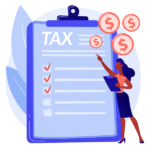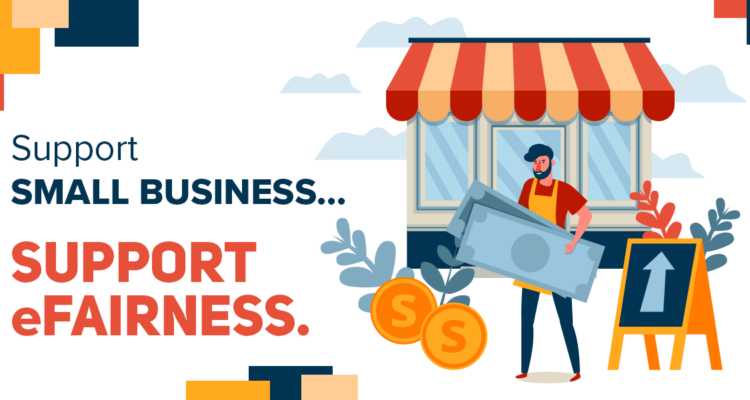Imagine you own a small business. You employ Floridians, sponsor the local little league team and support your community. Now, imagine your out-of-state competitor enjoys a government-granted pricing advantage on every product—6 percent across the board. It’s wrong, but it’s also a reality for countless small businesses across Florida.
Here’s why: Our brick-and-mortar retailers are required to collect sales taxes, but their online competitors are not. This loophole has created an uneven playing field, disadvantaging businesses from Florida, while giving a big boost to Big Tech from California.
Fully 80 percent of Florida’s budget is funded by sales taxes. Thanks to this strong revenue stream, Florida remains one of the few states without an income tax. Unfortunately, this vital sales tax revenue, everything it funds, and Florida’s low-tax, business-friendly climate are all endangered by the sales tax loophole exploited by many out-of-state tech companies.
A 2018 Supreme Court decision confirmed that states can collect sales taxes from out-of-state sellers. Every state has since done so, except just Florida and Missouri.
 Fortunately, two bills have been filed for the upcoming 2021 session that would redefine the term “retail sale” and equally apply Florida’s sales tax laws to all businesses, whether online or on Main Street. This will create sales tax competitiveness, or “eFairness,” and close the loophole for good. Florida’s small businesses should not be penalized for opening brick-and-mortar stores. Ensuring that out-of-state companies pay sales taxes will not only protect Florida’s most important revenue stream, it will also preserve our state’s low-tax, business-friendly climate. “It is extremely important to Florida businesses to level the playing field for those of us with a physical presence in Florida, and who employ Floridians,” said Debbie Harvey, President and CEO of Ron Jon Surf Shop.
Fortunately, two bills have been filed for the upcoming 2021 session that would redefine the term “retail sale” and equally apply Florida’s sales tax laws to all businesses, whether online or on Main Street. This will create sales tax competitiveness, or “eFairness,” and close the loophole for good. Florida’s small businesses should not be penalized for opening brick-and-mortar stores. Ensuring that out-of-state companies pay sales taxes will not only protect Florida’s most important revenue stream, it will also preserve our state’s low-tax, business-friendly climate. “It is extremely important to Florida businesses to level the playing field for those of us with a physical presence in Florida, and who employ Floridians,” said Debbie Harvey, President and CEO of Ron Jon Surf Shop.
The COVID-19 pandemic dampened tourism, damaged Florida’s economy and strained the state budget. Establishing eFairness would preserve local jobs and could create a 1.7 percent revenue boost without raising taxes, according to Fitch Ratings.
 In past years, similar senate and house bills filed regarding eFairness have won support from top state business organizations like The Florida Chamber of Commerce and the Florida Retail Federation. Small businesses, local governments and budget watchdogs have also supported eFairness. This year, after local businesses struggled through the pandemic, eFairness is even more important. “This needed to be done before this pandemic and absolutely must be done because of the pandemic,” said Dominic Calabro, TaxWatch President and CEO. This sentiment was echoed by Senator Gruters, “the pandemic shows the need more than ever for digital purchases to be taxed the same as those made in Main Street shops.” It’s not complicated—it’s common sense.
In past years, similar senate and house bills filed regarding eFairness have won support from top state business organizations like The Florida Chamber of Commerce and the Florida Retail Federation. Small businesses, local governments and budget watchdogs have also supported eFairness. This year, after local businesses struggled through the pandemic, eFairness is even more important. “This needed to be done before this pandemic and absolutely must be done because of the pandemic,” said Dominic Calabro, TaxWatch President and CEO. This sentiment was echoed by Senator Gruters, “the pandemic shows the need more than ever for digital purchases to be taxed the same as those made in Main Street shops.” It’s not complicated—it’s common sense.
So as Tallahassee prepares for another legislative session (scheduled to start in March) one question we are asking is, “will Florida join 48 other states, and get closer to eFairness?” Government shouldn’t pick winners and losers—especially when the “winners” are out-of-state tech giants, and the “losers” are local businesses that hire Floridians, sponsor little league teams, and support our communities.

